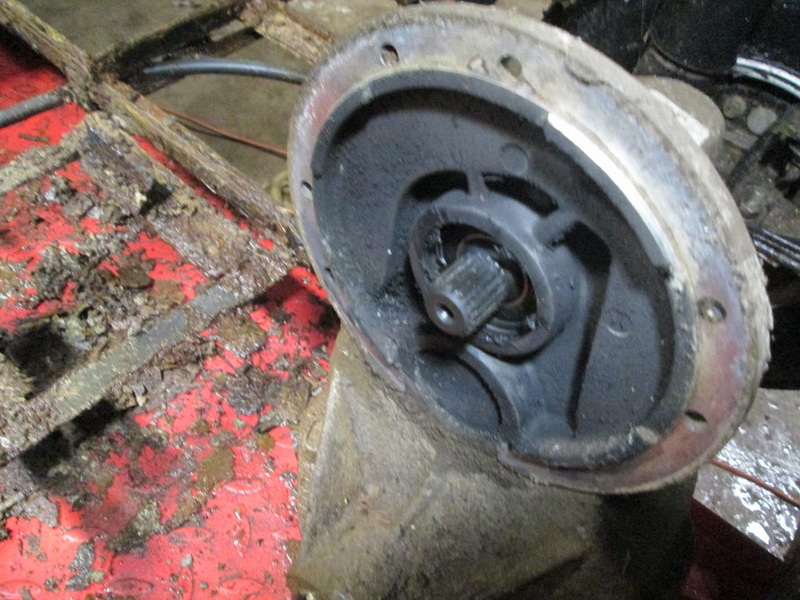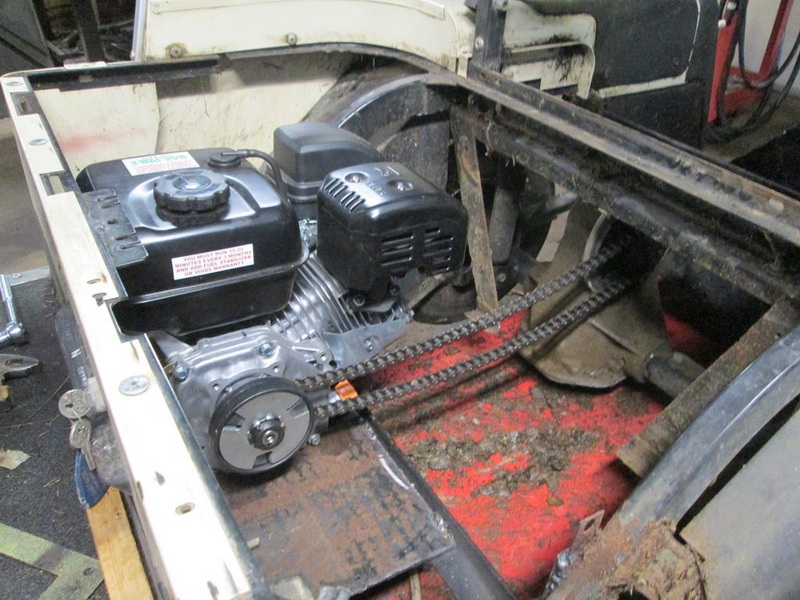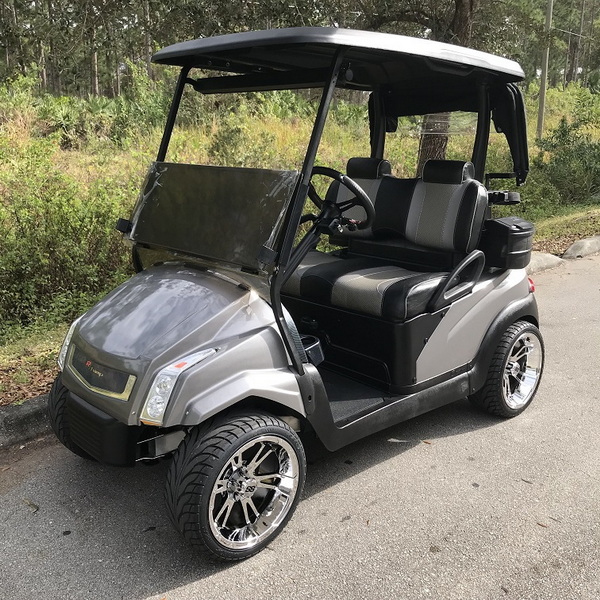Content Menu
● Understanding the Basics
>> Advantages of Gas Golf Carts
● Key Components Needed for Conversion
● Step-by-Step Conversion Process
>> 1. Preparing Your Golf Cart
>> 2. Installing the Gas Engine
>> 3. Setting Up Fuel Delivery
>> 4. Exhaust System Installation
>> 5. Wiring and Electrical Setup
>> 6. Final Adjustments and Testing
● Maintenance Tips for Your Gas Golf Cart
● Troubleshooting Common Issues
● Performance Enhancements
● Safety Considerations
● Environmental Impact
● Case Study: Successful Conversion
● Conclusion
● FAQ
>> 1. Is it legal to convert an electric golf cart to gas?
>> 2. How much does it cost to convert an electric golf cart to gas?
>> 3. Can I use any gas engine for my golf cart conversion?
>> 4. Will I need special tools for this conversion?
>> 5. How long does it take to complete this conversion?
Converting an electric golf cart to a gas-powered one can be an exciting project that not only revives an old cart but also enhances its performance. This guide will walk you through the entire process, from gathering the necessary materials to completing the conversion.

Understanding the Basics
Before diving into the conversion, it's essential to understand why someone might want to make this switch. Electric golf carts, while quiet and environmentally friendly, often have limitations in range and power. Gas-powered carts can offer extended range and quicker refueling times, making them more suitable for various applications beyond just golfing.
Advantages of Gas Golf Carts
- Extended Range: Gas carts can typically run longer than electric ones on a single tank of fuel.
- Faster Refueling: Filling up a gas tank takes only a few minutes compared to charging batteries, which can take hours.
- Power and Performance: Gas engines generally provide more torque and speed, making them better suited for hilly terrains or off-road conditions.
- Lower Maintenance Costs: While gas engines require regular maintenance, they often have fewer issues related to battery life and electrical components.
Key Components Needed for Conversion
To successfully convert your electric golf cart to gas, you will need several key components:
- Gas Engine: A common choice is the Predator 212 engine, known for its reliability and affordability.
- Engine Mount: This will support the engine securely within the cart's frame.
- Fuel Tank: Necessary for storing gasoline.
- Fuel Lines and Fuel Pump: These components will deliver fuel from the tank to the engine.
- Carburetor: To mix air and fuel for combustion.
- Exhaust System: To safely vent exhaust gases away from the cart.
- Throttle System: A mechanism to control the engine's power output.
- Wiring and Ignition System: Essential for starting the engine.
- Rear Axle Assembly: If your electric cart's axle is not compatible with a gas engine, you may need to replace it with one designed for gas-powered carts.

Step-by-Step Conversion Process
1. Preparing Your Golf Cart
Start by removing all electric components from your golf cart. This includes:
- Batteries
- Electric motor
- Wiring harnesses
Make sure to safely dispose of any batteries according to local regulations. It's crucial to wear appropriate safety gear during this process, including gloves and goggles, as batteries can be hazardous if mishandled.
2. Installing the Gas Engine
Once the electric components are removed, follow these steps:
1. Mounting the Engine:
- Create or purchase an engine mount that fits your gas engine.
- Securely attach the engine mount to the golf cart frame using bolts or welding techniques. Ensure that it is level and stable to prevent vibrations during operation.
2. Connecting the Drive System:
- Depending on your golf cart model, you may need to modify or replace the rear axle.
- Align the engine's output shaft with the rear axle input shaft.
- Use a chain or belt drive system to connect the two. Ensure proper tension is applied. This step is critical as misalignment can lead to increased wear or failure of components.
3. Setting Up Fuel Delivery
Next, install the fuel system:
- Install Fuel Tank: Position it securely within the frame, ensuring it's accessible for refueling.
- Connect Fuel Lines: Attach lines from the tank to the fuel pump and then to the carburetor. Make sure all connections are tight to prevent leaks.
4. Exhaust System Installation
Install an exhaust system that routes exhaust gases away from both the engine and passengers:
- Use flexible tubing if necessary to navigate around obstacles in your golf cart's frame.
- Ensure that exhaust exits away from any areas where people might be sitting. Consider adding a muffler to reduce noise levels during operation.
5. Wiring and Electrical Setup
Although you are converting to gas, some electrical systems remain necessary:
- Install a new ignition switch connected to your gas engine.
- Ensure that any safety features (like kill switches) are operational. This is vital for ensuring safe operation of your converted cart.
6. Final Adjustments and Testing
After everything is installed:
1. Double-check all connections—fuel lines, electrical wiring, and mechanical linkages.
2. Fill up with gasoline and check for leaks in your fuel system.
3. Start your engine and allow it to idle while checking for any unusual noises or issues.
4. Test drive your newly converted golf cart in a safe area before taking it out on public roads or golf courses. Pay attention to how it handles compared to its electric counterpart.
Maintenance Tips for Your Gas Golf Cart
Once you've completed your conversion, maintaining your gas golf cart is crucial for its longevity:
- Regular Oil Changes: Just like any gas-powered vehicle, change the oil regularly based on usage—typically every 50 hours of operation or as recommended by your engine manufacturer.
- Check Spark Plug Condition: Inspect and replace spark plugs as needed; this ensures optimal performance and efficiency.
- Inspect Fuel System: Regularly check fuel lines for cracks or leaks and ensure that filters are clean.
- Clean Air Filter: A clean air filter improves efficiency; replace it according to manufacturer recommendations.

Troubleshooting Common Issues
Even with careful conversion and maintenance, issues can arise. Here are some common problems and their solutions:
- Engine Won't Start: Check the fuel supply, spark plug, and ignition system. Ensure that the fuel is fresh and that the spark plug is clean and properly gapped.
- Poor Performance: If the cart is sluggish, inspect the carburetor and air filter. Cleaning or replacing these components can often resolve performance issues.
- Excessive Noise: Ensure that the exhaust system is properly installed and that there are no leaks. A loose muffler can also cause increased noise levels.
- Fuel Leaks: Inspect all fuel lines and connections. Tighten any loose fittings and replace damaged lines immediately.
Performance Enhancements
To get the most out of your gas-powered golf cart, consider these performance upgrades:
- High-Performance Air Filters: These can increase airflow to the engine, improving power and efficiency.
- Upgraded Exhaust Systems: A performance exhaust can reduce back pressure and increase horsepower.
- Engine Tuning: Adjusting the carburetor and ignition timing can optimize engine performance.
- Suspension Upgrades: For off-road use, consider upgrading the suspension to handle rough terrain better.
- Tire Selection: Choose tires that match your intended use, whether it's for smooth golf courses or rugged trails.
Safety Considerations
When converting and operating a gas-powered golf cart, safety should always be a priority:
- Proper Ventilation: Ensure that your workspace is well-ventilated when working with gasoline and exhaust systems to avoid inhaling harmful fumes.
- Fire Safety: Keep a fire extinguisher nearby when working with flammable materials like gasoline.
- Protective Gear: Always wear safety goggles and gloves to protect against accidental spills and debris.
- Regular Inspections: Conduct regular inspections of your cart to catch any potential issues early, such as fuel leaks or worn-out parts.
Environmental Impact
While gas-powered carts offer certain advantages, it's important to consider their environmental impact:
- Emissions: Gas engines produce emissions that can contribute to air pollution. Consider using cleaner-burning fuels or additives to reduce your cart's environmental footprint.
- Noise Pollution: Gas engines are typically louder than electric motors. Be mindful of noise levels, especially in residential areas or quiet golf courses.
Case Study: Successful Conversion
To illustrate the process, let's look at a case study of a successful conversion:
John, an avid golfer, decided to convert his electric golf cart to gas to extend its range and improve performance on hilly courses. After researching and gathering the necessary parts, he followed a detailed guide similar to this one. The conversion took about a week while working part-time and cost approximately $1,200. John reported a significant improvement in power and range, allowing him to enjoy longer outings without worrying about battery life. His experience highlights how effective this conversion can be when done correctly.
Conclusion
Converting an electric golf cart to gas can breathe new life into an old vehicle while providing enhanced performance capabilities. While this process requires mechanical skills and attention to detail, it can be a rewarding DIY project that results in a functional and enjoyable gas-powered golf cart. By following this guide carefully and taking all necessary precautions during installation and operation, you can enjoy many years of reliable service from your newly converted gas golf cart.

FAQ
1. Is it legal to convert an electric golf cart to gas?
Yes, as long as you comply with local regulations regarding emissions and safety standards.
2. How much does it cost to convert an electric golf cart to gas?
Costs can vary widely but expect to spend between $500 and $1500 depending on parts used and whether you do it yourself or hire a professional.
3. Can I use any gas engine for my golf cart conversion?
Not all engines are compatible; it's best to choose one specifically designed for small vehicles like golf carts (e.g., Predator 212).
4. Will I need special tools for this conversion?
Basic mechanical tools such as wrenches, sockets, drills, and possibly welding equipment will be needed for this project.
5. How long does it take to complete this conversion?
The time required can vary based on experience level but generally ranges from a few days to a week if working part-time on the project.











































